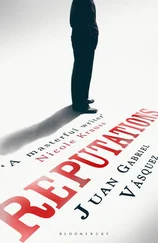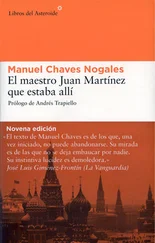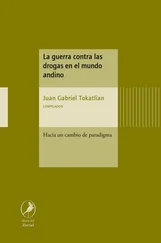In the front hall, where there had always been a stone angel stationed under the staircase, there was now no staircase, but rather a solid oak bookcase, and the stone angel was an armchair for reading. Three rooms shared the space that thirty-nine years earlier had been the living room: one for the hunting weapons, one for winter clothes, and another that Madame Michaud did not verify, because it looked dark and perhaps deep (she thought there was a banister descending to a cellar), and she was afraid of getting lost. The main floor was unrecognizable; Madame Michaud was consoled by the fact that she could not go upstairs — she didn’t know how to get there — thus she avoided having to feel her way blindly again and the unfamiliarity, the painful unfamiliarity.
Madame Michaud was not alone in the house, but the other presence would not have given herself away for all the gold in the world. From the rose windows of the attic, Sara saw her leave, and it was as if she could feel the cold that stung her older sister’s face. Sara did not miss out on a single detail: before her anxious gaze, Madame Michaud saw that a sort of hut without walls stood on the spot where, as she remembered, the barn for the Lusitanian horses had been, and then, with a hand to her forehead, she discovered that the distant garden with its sleeping plants had once been a dense grove of trees. She was grateful that the taxi was still waiting, because she wasn’t sure she’d be able to find the way out among so many new lanes leading to so many new outbuildings, to the many recent constructions that Sara had planned and erected with the patience of an artist over the course of thirty-nine years, in many cases not even yet occupied or serving any purpose, because their only justification was to replace a memory or an affection in the mind of Madame Michaud so that now she, in the backseat of the taxi, would be wondering where she might go, what place remained for her in the world.
At the Café de la République
YOUR NAME AND ADDRESS are typed on the envelope, as I didn’t want you to recognize my handwriting and throw the letter away without even opening it. This is the sentence at the top of the page on which I tell Viviane about what has happened to me over these last few months — without going into too many details about the illness, because I don’t even have any myself — and ask her to come with me to visit my father. Now, for the first time since I posted it, I think she might not come, and I feel I wouldn’t blame her. I said to meet at the Gare d’Austerlitz — the railway stations are practically the only places in Paris open on Sundays — and I’ve sat down to wait for her on a bench that smells like bleach and the coffee a tramp is drinking very slowly beside me and the sweat of weekend joggers. The cold has let up a little bit: it’s now possible to see people carrying their sweaters as they walk, days are getting longer and dawn now breaks without fog, and the last layer of gritty ice on the sidewalks has melted away. Whole centuries seem to have passed since November. Would these first months of single life or solitude have been the same for her? When I see her coming, I rush over to meet her so she won’t have to come into the entrance hall, because she, perhaps the woman most sensitive to cold in existence, is still wearing her overcoat and scarf despite the newspapers saying that winter ended a week ago, and she’s always detested going into warm places because of the extravagant unwrapping and wrapping up again involved. I don’t know how I should greet her; she reveals the same awkwardness. We don’t kiss. We don’t shake hands. Viviane’s gaze passes over my shoulders and hair, avoids immediately focusing on the inflammation on my neck. The white and polished midday light bathes her face with a deceptive pallor. I’m not surprised that, six months after our separation, she still strikes me as unusually beautiful. But nobody has ever said we should stop finding a woman attractive once we’ve left her.
“So, you didn’t tear up the letter,” I say to her.
“No. But I do want to ask you that we get this over with as quickly as possible.”
“You bought some new earrings.”
“A couple of weeks ago,” says Viviane. “Where are we going?”
“To République. You’ve been to the apartment, I don’t know if you remember.”
“Your father’s still there?”
“Still there. What’s the matter?”
“It can’t be healthy. Isn’t it full of bad memories, ghosts?”
“Of course,” I say. “But they only scare the guests.”
“You know what I mean,” says Viviane, irritated. “Don’t play the fool.”
My mother left the apartment on Rue de la Fontaine-au-Roi when I was sixteen years old. Her departure was foretold, and no one held out any hope during her brief resolution to force herself to restore family life: those were the good intentions that anticipate the definitive decision, and that was obvious even to my father. Until we were officially engaged, I hid certain aspects of that process from Viviane. At the time I thought and said that it pained me to touch on the subject; now, that conviction has deserted me. When I finally told her about all that, of the nights when my father would come home drunk and furious with my mother for leaving him and their son, kicking doors and startling me awake in the middle of the night, Viviane reproached me for taking so long to tell her. She complained about my silences, about the walls I seemed to put up around myself. She complained about not feeling needed. Referring to my mother, she said, in a moment of rage, that I had probably been happy about it, because all my life I’d been happy when I was able to do without someone: an occasional girlfriend I decided not to see anymore, a friend who silently drifted away until he stopped talking to me, guests whose stay was reaching its end. She was always disturbed by the ease with which I excluded others or allowed them to exclude themselves.
We wait for the metro on the Bobigny side. The trains still run aboveground at first. The car we get into is empty, except for two North African women who are sitting on the drop-down seats as if they preferred to be uncomfortable, as if they felt unworthy of the spaciousness of the main benches. Viviane turns away from me, and her face, during the dark stretches between stations, is reflected in the glass as if it were a mirror. Behind that face, deep in the black wall, is mine: suspicious eyebrows, Mediterranean fisherman’s nose, bandage. My attention goes back to Viviane. When she squeezes her eyelids shut, I notice she’s not wearing any makeup. When we said hello, she’d successfully pretended, but now that talent is beginning to evaporate.
“Please don’t cry,” I say.
“Why not? So your father won’t imagine things?”
I don’t say anything. I don’t want this day to start with an argument.
“Don’t you think he’s going to realize we’re not together anymore?”
Her resentment toward me is visible, and it’s obvious she’s been nurturing it with dedication. At first, months earlier, I used to stop and wonder what Viviane was feeling, what questions were going through her mind, or what sorrows, what things she’d be regretting. I soon stopped, out of fear of the small private abyss that this solidarity opened in front of me. Lovers are not made for pondering the consequences of their own actions. Viviane asks me:
“How long has it been since you last saw him?”
“A year, more or less. There’s no reason he would have found out about us. So this is the favor I’m asking of you.”
“I already know that, don’t hassle me so much. Leave me alone for a while, please.”
She looks at me. The sadness in her eyes is almost intolerable. It hurts her to be with me, see me, and hear my voice for the first time in four months. If she agreed to come, I think, it’s because she knows as well as I do how much her presence facilitates relations with my father, and because she understands my desire to avoid explaining anything, describing my life, going into my reasons for leaving her: she understands, in fact, that I’d rather give my father the impression that my family is intact and that the son of a wife who left will not inevitably abandon his own marriage. We’ve been talking in shouts, as people do so the roar of the metro won’t carry away their words, and the women looked at us out of the corners of their eyes, as if through their veils. I feel like insulting them. Then I realize they’re looking at my face, not a banal dispute between former lovers. Viviane has also noticed, and with the hand still wearing her wedding ring — or has she put it back on this morning, perhaps she was even lucid enough to think of that — she touches my cheek and jaw and the bandage covering the swollen lymph node. She examines it.
Читать дальше










